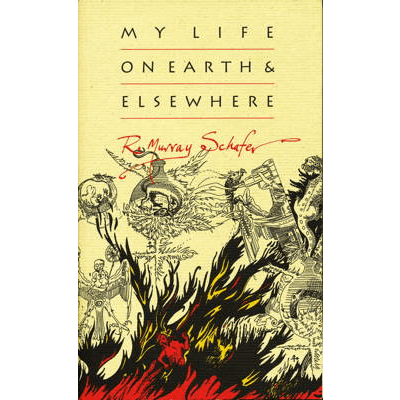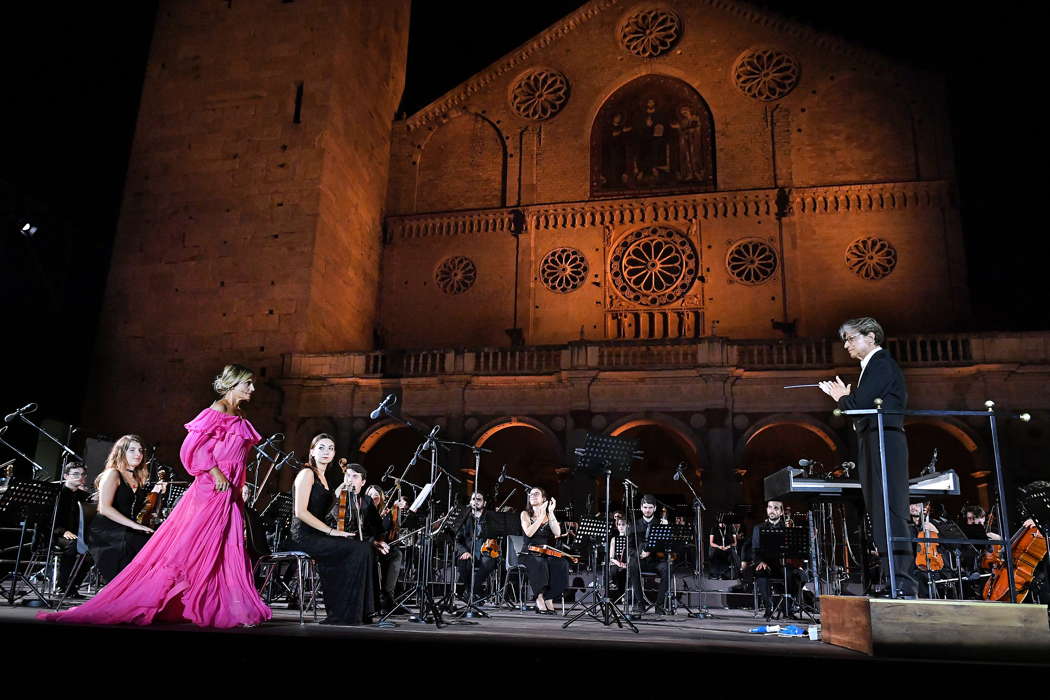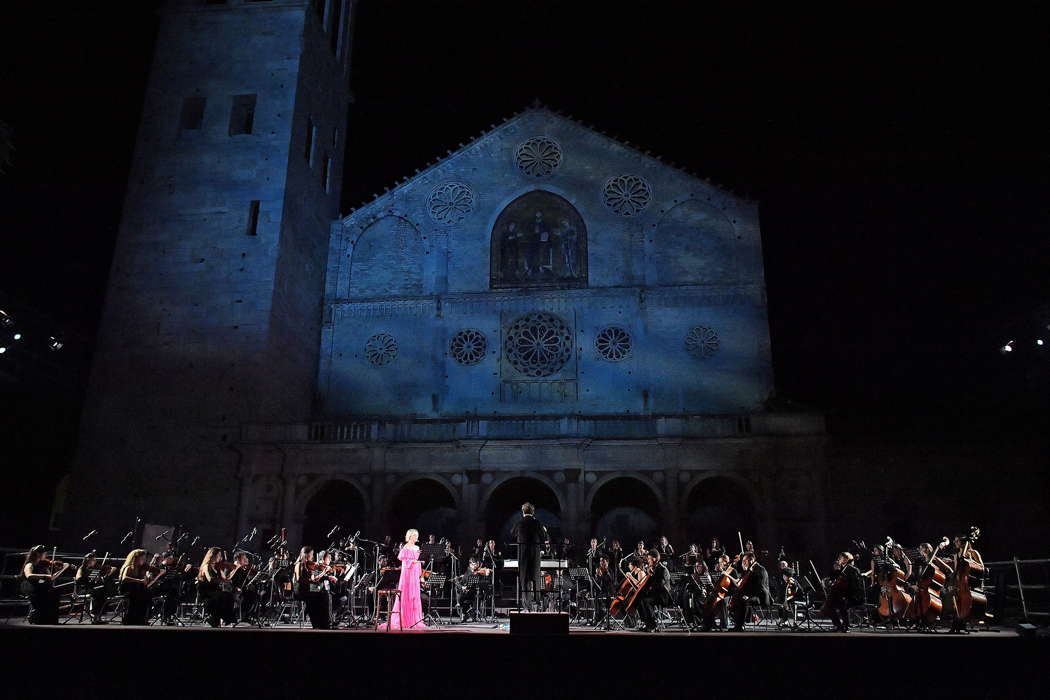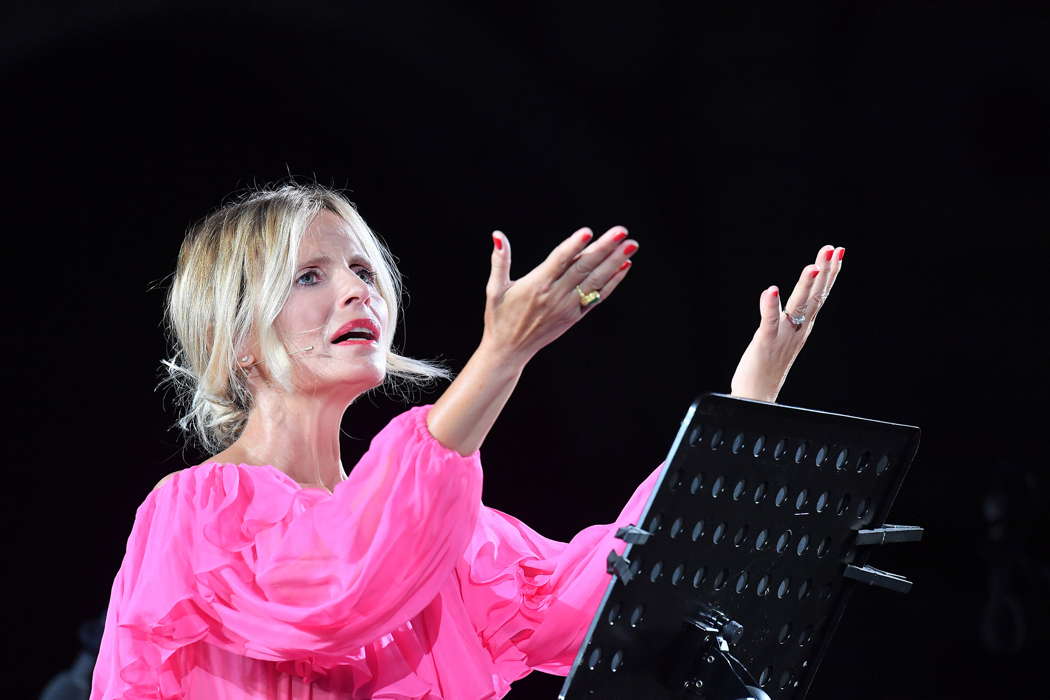- Muti
- Fareed Curmally
- Stockholm
- Elodie Lauten
- Josquin des Prez
- Sibelius: Violin Concerto
- Kharkiv
- Drake University
 SPONSORED: So Much, for So Many. R Murray Schafer's 'My Life on Earth and Elsewhere', read by A P Virag.
SPONSORED: So Much, for So Many. R Murray Schafer's 'My Life on Earth and Elsewhere', read by A P Virag.
All sponsored features >>
 DISCUSSION: John Dante Prevedini leads a discussion about Composers, individuals or collective?, including contributions from David Arditti, Halida Dinova, Robert McCarney and Jane Stanley.
DISCUSSION: John Dante Prevedini leads a discussion about Composers, individuals or collective?, including contributions from David Arditti, Halida Dinova, Robert McCarney and Jane Stanley.
Ariadne, Phaedra and Dido
GIUSEPPE PENNISI visits Spoleto to experience the first performance of a new work by Silvia Colasanti
In my view, all international music festivals - with the exception of monographic festivals, ie those concerning the works of a single composer - should perform contemporary music and hopefully commission it. Due to the implications of lockdown and the uncertainty whether the festivals could actually be held, in Italy, this Summer, we listen to contemporary music only at the International Festival and Summer Academy in Siena and at the Festival dei Due Mondi (Spoleto Festival of the Two Worlds). There the world premiere of a new composition was performed on 22 August 2020 in the Piazza Duomo. The Festival had commissioned it from one of the most interesting Italian composers of the young generation: Silvia Colasanti. The title is Arianna, Fedra e Didone. I was in the audience.
The three monodramas of about twenty minutes each, to be performed without intervals for a total of about an hour, are the third and last work of a triptych. The first two - Minotaur and Proserpine - were successfully staged at the Teatro Nuovo Giancarlo Menotti of Spoleto in 2018 and 2019 respectively.
The first two works of the trilogy are strongly theatrical and characterized by a forceful dramatic character and a score like elegant embroidery with skilful orchestration and well-balanced vocal writing. The structure of these three monodramas is, to a large extent, the consequence of having to be represented not in a theatre but in a vast square, where stage action is necessarily limited.

A scene from the first performance of Arianna, Fedra e Didone by Silvia Colasanti at the 2020 Festival dei Due Mondi in Spoleto. Photo © 2020 Maria Laura Antonelli
Let the composer talk:
Love is the protagonist of the third work of my musical theatre inspired by the classical myth and composed after Minotaur and Proserpine, also born thanks to the 'commission' by Giorgio Ferrara for the Spoleto Festival: Arianna, Phaedra, Dido, three monodramas for an actress, a female choir and an orchestra. Imaginary letters of love, remoteness, death, marked by the theme of the absence of the beloved, characterized by the nostalgic tone for a happy past and the desperate desire to relive it. Heartbreaking and poignant letters, full of passion and sweetness that trace the different sentimental events showing them no longer from the perspective of the hero, but of the abandoned woman, who becomes the real heroine. Arianna writes to Theseus as soon as she wakes up, realizing that he has abandoned her by fleeing into the sea.
Phaedra, in love with her stepson Hippolytus, writes a seductive letter to induce him to give in to an impossible and incestuous love. Dido, feeling the inevitability of his destiny of death, writes to Aeneas in a last attempt to persuade him to return. The actress plays the three women, each with a story in her own right, while at the same time drawing a wonderful fresco of the female universe. In some instances, the voice of the protagonist is entrusted to a choir of women - which sings the original text in Latin - in which the actress can mirror herself, looking from the outside, investigating her different souls, or amplifying past memories making them real and close. Words dialogue with the sounds of the orchestra, which at times foretells, at times emphasizes, the different moods that follow each other and overlap in the flow of thoughts that tells in an eternal and universal way love.
This text explains the meaning of the work better than any summary. The protagonists are three: the actress Isabella Ferrari in a bright pink Valentino dress, a large symphony orchestra and a medium-sized female choir.

A scene from the first performance of Arianna, Fedra e Didone by Silvia Colasanti at the 2020 Festival dei Due Mondi in Spoleto. Photo © 2020 Maria Laura Antonelli
In general terms, the work is less like the opera by Colasanti (which has almost a Britten-like structure). It recalls the Requiem (for the victims of the earthquake) which, commissioned by the festival, was first performed in Spoleto in 2017 and was also heard in other cities (and of which there is a CD and a DVD). The music is tonal and the references are rather to Arthur Honneger and Jake Heggie, as well as, in the section related to Phaedra, to Straussian expressionism. The orchestration is very sophisticated. Despite the outdoor performance (which does not allow appreciating all the details), cellos and winds have played an important role in emphasizing the dark colour of three short monodramas on the desperation of abandoned women.

Isabella Ferrari performing Arianna, Fedra e Didone by Silvia Colasanti at the 2020 Festival dei Due Mondi in Spoleto. Photo © 2020 Maria Laura Antonelli
This was a great success in a square 'sold out' also due to social distancing that limited the audience to about six hundred spectators.
Copyright © 24 August 2020
Giuseppe Pennisi,
Rome, Italy

FURTHER ARTICLES ABOUT SPOLETO
FURTHER LIVE CONCERT AND OPERA REVIEWS


